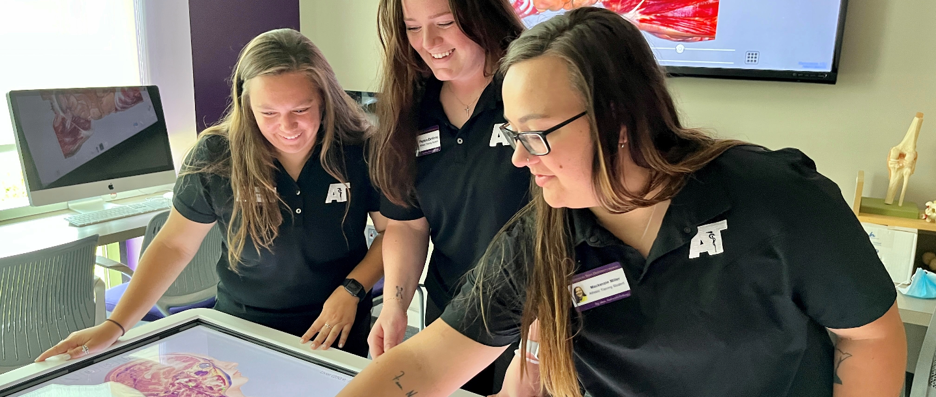Mission and Goals
Teach. Learn. Heal.
It is the mission of the Master of Science Athletic Training Program at Minnesota State University to provide inclusive, dedicated, effective teaching, scholarship, and service to our students and to the athletic and physically active populations of the University, the community, the state, the region, and the global community. We strive to develop healthcare professionals who consider racial, ethnic, socio-economic, sexual, gender and religious diversity while providing equitable, patient centered care based on current best practices.
Program Goals
- To facilitate student knowledge and clinical skill development as the foundation for sound practice in the profession of Athletic Training and related fields.
- To develop proficiency in the knowledge, skills, and abilities necessary in the following content areas necessary for the practice of Athletic Training:
- Evidence-Based Practice
- Prevention and Health Promotion
- Clinical Examination and Diagnosis
- Acute Care of Injury and Illness
- Therapeutic Interventions
- Psychosocial Strategies and Referral
- Healthcare Administration
- Professional Development and Responsibility
- To recognize the need for the support of clinical practice through the use of education, research, and service to the profession.
- Students will pass the athletic training Board of Certification (BOC) examination at a rate that exceeds the accreditation requirement for both first attempt and overall (i.e. regardless of number of attempts).
- To respect and treat students, patients, preceptors, and faculty as individuals, and without regard to race, ethnicity, sexual preference, gender identity, socioeconomic status, political or religious affiliation, or athletic ability.
- Students will practice cultural humility while interacting with patients, preceptors, and others.
- The program demonstrates systematic diversity, equity, inclusion and social justice efforts in its development, design, and delivery.


